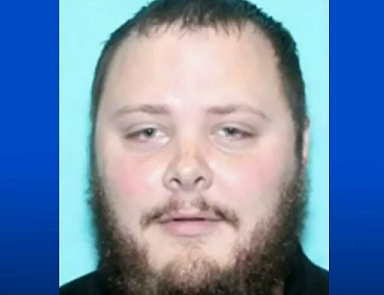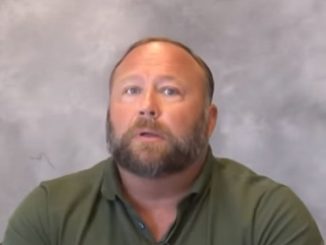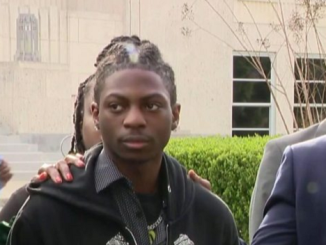
Texas church gunman Devin Patrick Kelley was armed with three guns and had argued with his mother-in-law before the rampage, officials say.
The attack on the small church outside San Antonio during Sunday services left 26 people dead and 20 injured.
Kelley called his father after he was shot by an armed bystander and said he did not think he would survive.
He was not legally permitted to own the weapons, which included a semi-automatic rifle and two handguns.
Freeman Martin, the regional director for the Texas Department of Public Safety, told reporters it appeared that Kelley died from a self-inflicted gunshot wound after first being shot by a “good Samaritan”.
“This was not racially motivated, it wasn’t over religious beliefs,” Mr Martin said.
“There was a domestic situation going on with the family and in-laws,” he said, adding that the mother-in-law had received threatening text messages from Kelley in recent days.
Wilson County Sheriff Joe Tackitt said that the family members had not been present at the time of attack.
Kelley fled the scene after exchanging gunfire with a local resident who heard gunshots from coming from across the road, Mr Martin said on Monday.
Johnnie Langendorff told local media that he picked up the Texas man, identified by US media as Stephen Willeford, and the pair pursued Kelley in a car chase.
He said they drove at speeds of up to 95mph (153km/h) until the gunman lost control of his car and crashed.
Kelley was later found dead inside his vehicle with what appeared to be a self-inflicted gunshot wound, police said.
Who were the victims?
Officials have not yet identified the victims who were killed at the First Baptist Church in Sutherland Springs, a small town in Wilson County, which lies about 30 miles (50km) south-east of the city of San Antonio.
Of the 20 wounded, 10 are in hospital in a critical condition, four are in a serious condition and six are stable, officials say.
About half the victims were children, including one who was just 18 months old, according to Sheriff Tackitt.
The First Baptist Church’s pastor, Frank Pomeroy, told US media his 14-year-old daughter, Annabelle, was among those killed.
Officials said 23 people were found dead inside the church while two people were fatally shot outside. Another died in hospital, authorities said.
As many as eight members of the Holcombe family were killed in the shooting, the Washington Post reported.
The BBC spoke to the Holcombes’ neighbour Pauline Garza, who said the family did not come back from church.
Who was the gunman?
Kelley was court-martialled in 2012 after he was accused of assault against his wife and child. He was sentenced to 12 months confinement.
He received a “bad conduct” discharge two years later, according to Ann Stefanek, a US Air Force spokeswoman.
Texas Governor Greg Abbott said on Monday: “It’s clear this is a person who had violent tendencies, who had some challenges, and someone who was a powder keg, seeming waiting to go off.”
Mr Abbott added that the attacker should not legally have been allowed to own a firearm, after having been denied a gun owner’s permit by the state.
How did Kelley obtain a gun?
Analysis by Anthony Zurcher, BBC News, Washington
He was kicked out of the US Air Force, but how it happened may be important in understanding how he was able to purchase the weapons he used to kill 26 individuals in Sutherland, Texas.
Individuals who have been dishonourably discharged from the US military are prohibited from possessing firearms. Kelley had a “bad conduct” discharge, which is a level below “dishonourable” and didn’t automatically qualify for a ban.
Kelley received his discharge because he was convicted in a military court of assaulting his wife and child, which – under federal and Texas law – could have been deemed a domestic violence incident that would have prevented him from purchasing a firearm.
In addition, if the conviction was classified as a felony, that too would have been an automatic disqualification.
The key, it seems, is translating a court martial verdict into its civilian equivalent. A prison sentence of a year or more, which Kelley received from the military court, is also grounds for a gun-ownership prohibition.
None of this apparently came up on Kelley’s instant background check when he sought to buy firearms from a sporting goods store in Texas, however. Kelley also did not disclose details of his military criminal justice record on his purchase paperwork.
Source: bbc.co.uk






Be the first to comment